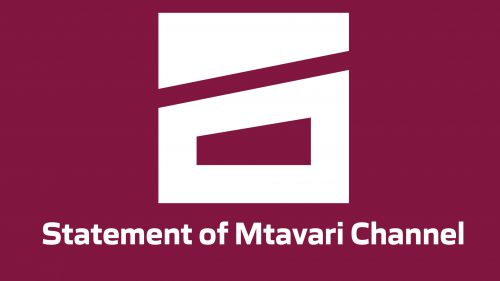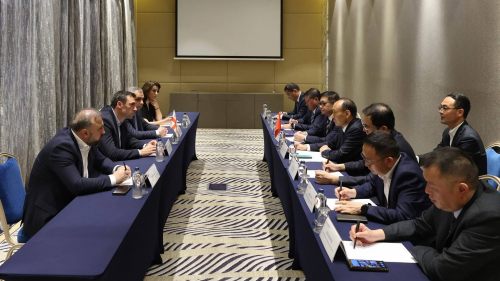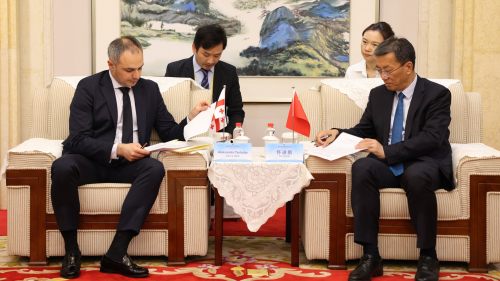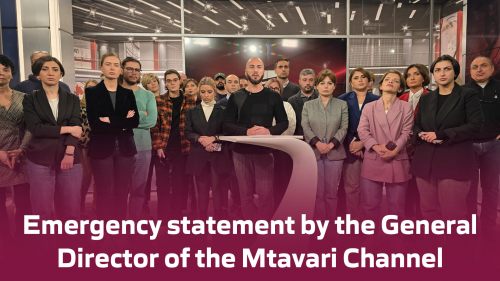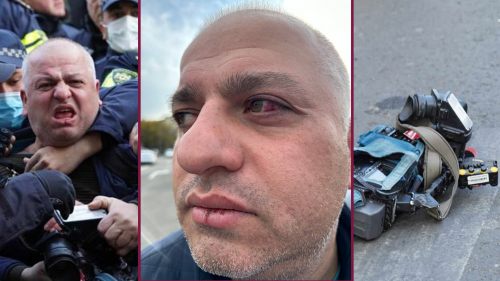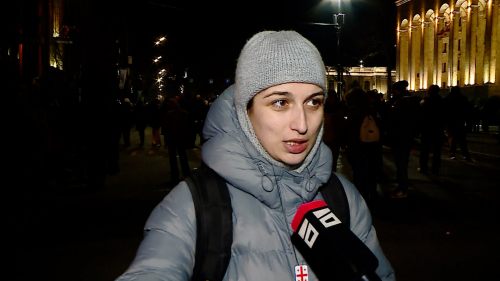
Constitutional Court partially satisfied the lawsuit of four TV stations On February 22, 2023, the first panel of the Constitutional Court of Georgia partially satisfied the lawsuit of "Mtavari Channel", "TV Pirveli", "Kavkasia", "Formula",filed by Irakli Saghinadze, Giorgi Liponava and Ketevan Devdariani.
It is about limiting the distribution of content materials that are dangerous for children in the media and on the Internet. The norms disputed by the constitutional lawsuit established the obligations of the broadcaster to protect the child from the influence of information that is dangerous for the child, to use the criteria for the classification of broadcast programs and to place the programs in the broadcast network in accordance with the Law of Georgia "On Broadcasting".
The disputed norms also prohibited the broadcaster from broadcasting information/programs containing danger to children. According to the challenged norms, the broadcaster should have determined the categories of programs and, when placing programs in the broadcasting network, should have been guided by the time limits established by the law. The appealed norms also provided for the cases of the National Communications Commission of Georgia imposing sanctions on the broadcaster due to the violation of the obligations established by the legislation.
"According to the plaintiffs, the disputed norms deprived them and for a certain time limited the opportunity to receive/distribute information with a specific content by means of their choice. According to their explanation, the substantive regulation of freedom of expression based on unforeseeable norms was a violation of the requirements established by the Constitution for limiting this right. According to the plaintiffs, even the content protected by freedom of expression, the restriction of which cannot be outweighed by the interest of protecting children's rights, is subject to substantive regulation," the statement states.
The plaintiffs also argued that this vagueness of the contested rules not only created a "'derogatory effect' on the broadcaster's freedom of expression, but also contained a corrective effect of censorship.
This forced broadcasters to be in constant coordination with the National Communications Commission and, for fear of sanctions, to specify in advance the content of the programme they were broadcasting or the content of the material posted in the programme," the report said.
The Constitutional Court has considered articles providing for the possibility of sanctioning a broadcaster for broadcasting information/material endangering a minor in such circumstances where the broadcaster, despite taking all possible precautions under the relevant circumstances, could not foresee and could not have anticipated the possibility of such material reaching the airwaves. The Constitutional Court has noted that during live broadcasting, the broadcaster, editorial staff or individual journalists are not relieved of their duties and responsibilities to scrutinise the issues covered, as far as possible, to anticipate potential risks so as not to intentionally or unintentionally become disseminators of content that is harmful to the interests of children. Also, where possible, immediately share such information and opinions and make warning statements.
"However, the court also recognized that this may not always be feasible and the broadcaster, for objective reasons, cannot prevent all possible dangers during live broadcasting, due to which the broadcaster would likely be subject to sanctions under Article 71 of the Georgia Law on Broadcasting. In Court's opinion, in such a case, but provided it is established that the broadcaster has taken all precautions based on the duties and responsibilities inseparable from freedom of speech, including the obligations directly imposed on the media to balance their greater freedom, the broadcaster's liability should be excluded," the statement says.
The Court believes that the legislator should minimise the likelihood of liability due to unforeseen circumstances for a media outlet that has approached the issue responsibly and applied all possible precautions in appropriate circumstances. Journalists and media managers have called Bekauri's bill another attempt to legalise censorship.



